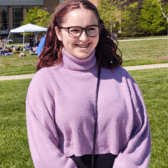Nagorno-Karabakh is a Feminist Issue
Zarine Ghazrayan is an ethnic Armenian living in a town called Sarnaghbuyr in Nagorno-Karabakh, a region in central Asia. On September 19, she was in a nearby town getting formula for her baby, a purchase that was restricted in her town by an Azeri blockade of resources from Armenia. With news of a possible bombing in her hometown from Azeri forces, Zarine rushed home, but was stopped by the threat of heavy fire and bombing.
Once home, she found two of her sons dead and the third seriously injured. The young boys, just trying to enjoy their childhood by playing outside, were attacked and attempted to shelter under a tree. Yet Zarine must wait to bury her children in Armenia because the only way to get to Armenia, the Lachin Corridor, has a line dozens of miles long.
Unfortunately, Zarine is not alone in her pain. On September 19, Azerbaijan invaded Nagorno-Karabakh and took full control of the region within 24 hours. Since then, more than 100,000 ethnic Armenians have fled the region, with more to follow.
Azerbaijan and Armenia are two former Soviet countries with ethnic tensions going back several centuries. Nagorno-Karabakh, also known as Artsakh, is a region in between the two countries with an 80% ethnic Armenian population. The people of the region have never considered themselves Azeri and, in 1992, the region, at the time 95% ethnic Armenian, voted to leave Azerbaijan. Azerbaijan did not accept this decision, and, in 1993, Armenia and Azerbaijan entered armed conflict over the region that ended in 30,000 casualties and a ceasefire that left Nagorno-Karabakh technically independent, but heavily connected with Armenia.
Leading up to 2020, there were frequent violent clashes over the region, and in 2020, conflict erupted, ending after 7,000 deaths with a Russia-enforced ceasefire. In 2022, Azerbaijan occupied the Lachin corridor, the only point of entry for Armenia into Nagorno-Karabakh, and prevented all shipments from entering the region, causing shortages in food, fuel, and medicine among other necessities. And then Azerbaijan invaded and occupied the region.
This political boundary dispute is a feminist issue because the permanent residents of Nagorno Karabakh are disproportionately women and girls with very few resources or basic necessities. Since Nagorno-Karabakh was named a part of Azerbaijan by the Soviet Union in the 1920s, women have played a pivotal role in peacekeeping efforts in the region. But they haven’t been represented in the government of Nagorno-Karabakh. Only 21% of Nagorno-Karabakh’s highest legislators are women, and very few have been involved in recent peace talks.
The unique economic structure of Armenia and Nagorno-Karabakh is also especially difficult for women. The majority of Armenian men seek work abroad, while the women stay at home to support the family, often working several jobs on top of childcare and homemaking. This unique economic structure is the reason the year-round residents of Nagorno-Karabakh are disproportionately women and girls. In times of conflict, the economy suffers, and women must take on even more work to support their families, worsening the quality of life for women and children. When there is not enough food to go around, it is often the mothers and daughters that do not eat, which is exacerbated in a deeply patriarchal structure. In Armenia and Azerbaijan, women are valued mainly for their role in producing and raising soldiers.
Exacerbating the issue, most women over the age of fifty in the area have little to no formal education, and the majority of women over thirty have at most a high school diploma. Domestic and gender-based violence are also common in Nagorno-Karabakh and go largely unacknowledged, though in recent years, women’s welfare groups have been working to improve the situation. Because of cultural taboos, reproductive and family planning services are hard to come by and often under the table, making them less accessible and more dangerous for women who need them and will access them regardless of legality.
Since the invasion of Nagorno-Karabakh, around 75% of refugees are women and children. This is especially worrying because sexual violence is often used as a tactic in war and can be even more rampant in chaotic situations. Sexual violence is also widespread and common at refugee camps, especially those close to conflict, with most victims being women and children. Because sexual violence is rarely the main concern at refugee camps, especially in cases such as the current conflict when there is not enough food, housing, or medicine to go around, there are no resources or protection for the victims.
Women also disproportionately shoulder the burden of inadequate care and resources in difficult times compared to their male counterparts. Access to reproductive and menstrual care, even resources as fundamental as pads or tampons, is near non-existent, and pregnant women have miscarriages and complications at more than three times the normal rate due to malnutrition and lack of access to medical care. Women cannot access contraceptives or clinical abortion, even in cases of rape, leaving them without they reproductive care they need.
Nagorno-Karabakh is deeply patriarchal and has few resources for issues that uniquely face women. The women and girls of Nagorno-Karabakh are suffering, and they need help. As feminists and people who care about the welfare of other human beings, it is our duty to help the women and girls of Nagorno-Karabakh. To help the people of Nagorno-Karabakh, support the Armenian Red Cross, Red Crescent, Armenia Fund, AGBU, and Doctors Without Borders. Petition the US government to condemn Azerbaijan and send aid money to Armenia. Unfortunately, the situation is rapidly deteriorating in Nagorno-Karabakh as more people escape the conflict. We must act now, before it is too late, and more people are hurt.
This piece was written as part of JWA’s Rising Voices Fellowship.







